B.F. Skinner
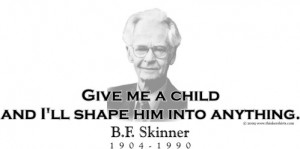 Influential behaviorists like B.F. Skinner were interested in studying natural human reactions and testing them. Skinner believed that people have little control over how we turn out to be as adults, that we are ultimately a product of circumstances and children are extremely malleable. I would say that Skinner most belongs amongst Creationists because of his interest in the way humanity is- and why. Behaviorism generally studies how animals respond and react, and why their “personalities” reflect lessons learned (esp. humans).
Influential behaviorists like B.F. Skinner were interested in studying natural human reactions and testing them. Skinner believed that people have little control over how we turn out to be as adults, that we are ultimately a product of circumstances and children are extremely malleable. I would say that Skinner most belongs amongst Creationists because of his interest in the way humanity is- and why. Behaviorism generally studies how animals respond and react, and why their “personalities” reflect lessons learned (esp. humans).
Skinner is probably most famous for his work with operant conditioning. He was concerned with rewards and punishments that happened after the response of the experiment, which he called “reinforcements”. These dictated what responses would occur later after future trials because the subject was either more or less likely to repeat the same behavior after the reinforcement. Skinner was curious as to why we respond the way we do in different situations. He attempted to explain the production of behaviors. Many behaviorists argue that our personality is basically just a compilation of our learned behaviors and habits- in what situations an individual has been punished or rewarded. This view gives little credit to people as having free thoughts. Although Skinners contributions to psychology were considerably modern, therapists today still hold his techniques and research invaluable.

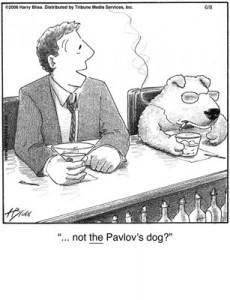
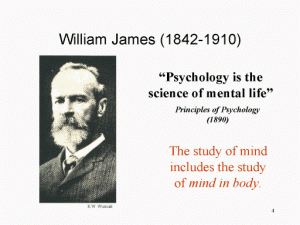
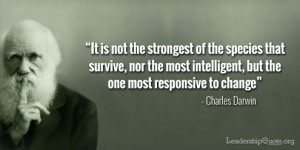
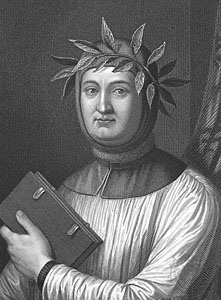
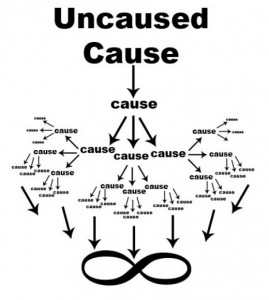
Lindsay Lowe on The Mind is A Terrible Thing to Waste
5:24 pm, 10.20.13
Irene, I liked what you said about redemption. How the human mind is influenced by God, and how he designed us to be affected. You have a positive outlook I always appreciate reading.
Lindsay Lowe on Gage and the fall
5:21 pm, 10.20.13
Great post, Taylor. I can definitely see why you would place Phineas Gage under the Fall. Although there were many positive implications of his unfortunate situation, what he is associated with is mainly traumatic brian injury.
Lindsay Lowe on Rousseau and Creation
11:41 pm, 10.04.13
Haley, how interesting that he could be classified in multiple categories. I thought of him as more of a restorative thinker than creationist. Although I completely see what you mean with his idea of man. You are a clear thinker and great post! thanks
Lindsay Lowe on Man as Machine? Animal?
11:38 pm, 10.04.13
Irene, I liked your example of the clip and thought it tied in well with your point about redemption. Good post!
Lindsay Lowe on Kant and the Fall
11:36 pm, 10.04.13
Jessica, I can definitely understand why you would classify Kant as the Fall. Much of his work focuses on the human soul, right and wrong (ethics) and such. Reality can kind of be pessimistic sometimes too. Great style! I enjoyed reading your post.
Lindsay Lowe on Leibniz' Creation Perspective
6:54 pm, 09.22.13
Denysha, I certainly associate the mathematic inclinations of Leibniz with Creationism. The way he wrote of life on Earth certainly was reminiscent of the beginning of the world and “Why are we here?” “Who are we?” types of questions. I agree with your thoughts on Aristotle and how you paralleled the two theorists. This was an interesting post to read. Thanks!
Lindsay Lowe on Gutenberg and The Renaissance
6:50 pm, 09.22.13
I liked the parallels you made with the example of the printing press’ influence on religion. The new ability for everyone to have a copy of the Bible and be literate was a newfound freedom at the time. It helped the people discover truths for themselves and gave them their own voice. Bibles spread the truth around the world. I agree that this tool spurred on religious reformation. Following up with Jessica’s comment, I would probably classify Gutenberg and the printing press with Redemption as well.
Lindsay Lowe on Erasmus: Recognition of the fall, and Redemption
6:42 pm, 09.22.13
I agree and appreciate that you listed Erasmus with the Fall but mentioned his mood and the effect of his writings. This works because he doesn’t completely have a morose outlook, but deals with issues of fallen humanity.
Also, thought it was an interesting perspective that you gave on his mention of Jesus. Thanks for the great post!
Lindsay Lowe on The Golden Mean
2:47 pm, 09.08.13
Interesting perspective. I liked what you said relating Aristotle to redemption. My first reaction is to compare “good life” to creation, but I do see what you mean with the golden mean. That idea is very applicable to redemption and our new life.
Lindsay Lowe on Thales and Creation
2:31 pm, 09.08.13
Hillary, I agree. I can see why you would categorize Thales with creation because his thoughts seem to relate to humanity’s current state of life. Especially through the theme of nature since that is truly terrestrial. Thanks for the post!